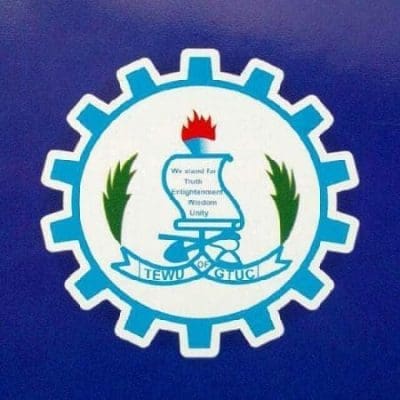The Teachers and Educational Workers’ Union (TEWU) of the Trades Union Congress (TUC), Ghana, has commenced an indefinite nationwide strike following prolonged government delays in signing Conditions of Service for members across key educational institutions.
TEWU declared the strike effective September 19, 2025, directing all members to stay away from work until further notice. The action covers staff in public universities, technical universities, the Ghana Education Service (GES), and the Ghana Library Board.
General Secretary King James Azortibah cited persistent government inaction despite repeated negotiations and National Labour Commission (NLC) interventions. The union maintains it has exhausted all legal procedures under the Labour Act 2003 before declaring the industrial action.
The TEWU leadership emphasized that non-teaching staff have endured unfair treatment for years and should not be taken for granted. The strike addresses stalled conditions of service, delayed promotions, and pay disparities that threaten to disrupt the academic calendar.
The union’s timeline reveals extensive negotiations beginning in November 2024 when TEWU first launched a nationwide strike. The NLC intervened, directing strike suspension for negotiations with a January 2025 deadline for resolution.
TEWU suspended the initial strike in good faith, exercising restraint through January when a new government took office. The union granted additional time until March for ministerial appointments, demonstrating flexibility in negotiations.
Despite completed appointments by April, the government failed to initiate engagement through June. TEWU proactively pushed for negotiations until the Fair Wages and Salaries Commission (FWSC) finally engaged in July to sign Rules of Engagement, though no progress materialized.
The union lodged a formal complaint with the NLC on August 27 following fruitless efforts with FWSC, GES, Ghana Museums and Monuments Board, and Ghana Library Authority. TEWU issued formal strike notice on September 5, copying relevant employers and the NLC.
Labour Minister Dr. Rashid Pelpuo has assured striking TEWU members that his ministry is working on resolving their concerns. However, a brief meeting with Azortibah ended in deadlock, with TEWU demanding clear mandates for FWSC and the Ministry of Finance to approve Conditions of Service.
The NLC wrote to FWSC on September 8, demanding response to TEWU’s complaint within seven days. When FWSC failed to respond by September 15, TEWU proceeded with the indefinite strike declaration.
The Volta Regional Secretariat has joined the national leadership in the strike action, citing aggravated and unfair labour discrimination issues. Regional chapters emphasize that educational sector staff deserve recognition and proper working conditions.
The union demands immediate signing of Conditions of Service for all non-teaching staff and inclusion of GES non-teaching staff in the Continuous Professional Development Allowance scheduled for September payment.
Azortibah maintains the strike is legal, justified, and binding on all members, having complied with Labour Act requirements. The union insists any intimidation attempts would constitute unfair labour practices.
The industrial action reflects broader tensions in Ghana’s educational sector, where non-teaching staff feel marginalized despite their contributions to institutional operations. Universities and technical institutions face potential disruptions as the academic year progresses.
While government assures it is working on comprehensive solutions to address the strike threats, TEWU maintains its position until concrete commitments emerge on Conditions of Service agreements.
The strike highlights challenges in Ghana’s labour relations, where unions increasingly resort to industrial action to secure basic employment rights. The outcome may influence future negotiations between educational worker unions and government agencies.
As the strike continues, students and educational institutions face uncertainty about academic schedules while TEWU maintains pressure for resolution of long-standing grievances affecting thousands of educational workers nationwide.
The dispute underscores the importance of timely labour negotiations and the consequences of prolonged government inaction on worker welfare issues in Ghana’s critical educational sector.
Source: newsghana.com.gh











